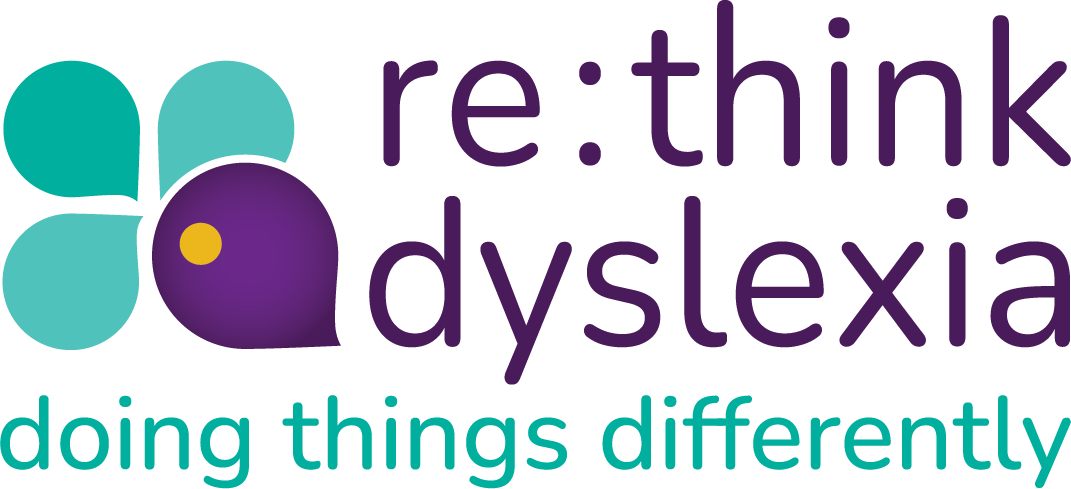Embracing Neurodivergence at Work:
Empowering Dyslexic Individuals by Closing the Support Gap
In today’s rapidly evolving professional landscape, diversity, inclusion and neurodivergence have become more than just buzzwords. Organisations worldwide are striving to create environments that embrace the unique strengths of each individual, regardless of their differences.
that embrace the unique strengths of each individual, regardless of their differences.
Neurodivergence refers to the natural variations in cognitive functioning, encompassing differences in thinking, learning, and processing information. This concept recognises that the human brain is incredibly diverse, leading to a wide spectrum of cognitive abilities and ways of experiencing the world. Neurodivergent individuals possess unique strengths and perspectives that contribute to the rich tapestry of human society. Embracing neurodiversity is not just a matter of social responsibility; it’s an opportunity to unlock innovation, foster creativity, and cultivate a more compassionate and inclusive world.
One group that deserves increased attention and support is individuals with dyslexia, a neurodivergent condition that affects their ability to read, write, and spell. Although you might think Autism (2%) and ADHD (6%) are the largest neurodivergent groups, Dyslexia has emerged as a leading neurodivergent condition in the workplace, affecting 10% of employees and it’s crucial to address the challenges they face and advocate for more comprehensive support systems. It’s important to note that those with dyslexia are protected under the Fair Work (2110) and Discrimination Acts (1992).
It’s important to note that dyslexia has no bearing on a person’s intelligence; individuals with dyslexia often possess exceptional talents in areas such as problem-solving, creativity, and spatial reasoning. Despite these strengths, navigating the workplace can present numerous challenges for dyslexic individuals, and these challenges are often compounded by a lack of understanding and accommodations. Dyslexia, a neurological condition that affects reading, and writing, has a significant impact on individuals’ experiences in the workplace. Beyond the obvious challenges in written communication, dyslexic individuals often confront a complex array of hurdles that can affect their confidence, efficiency, and overall job satisfaction.
Dyslexia Presentation in the Workplace
Psychosocial hazard of Job burn out
In the fast-paced world of modern work, the relentless demands of tasks, responsibilities, and expectations can gradually erode an individual’s mental resilience. Our research with La Trobe demonstrated that those with dyslexia are at significant risk of mental fatigue leading to job burnout. Mental fatigue is characterised by a persistent sense of exhaustion and decreased cognitive functioning, which serves as the precursor to a more severe phenomenon: job burnout. As mental fatigue chips away at an individual’s capacity to cope with stress and maintain focus, the risk of burnout intensifies. The prolonged strain of excessive workload, emotional exhaustion, and lack of control can culminate in a state of burnout that leaves individuals physically, emotionally, and mentally drained. Recognising the early signs of mental fatigue and implementing strategies to alleviate it becomes pivotal in averting the downward spiral toward job burnout.
The Hidden Struggle of Reading and Writing
For many individuals with dyslexia, reading and writing tasks can feel like navigating a labyrinth. The effort required to decode words and sentences can be mentally exhausting, and this exertion may hinder their ability to focus on comprehending the content itself. The workplace demands a variety of written communication tasks, from emails to reports, and even digital messaging. For dyslexic individuals, these tasks can be time-consuming and daunting, leading to frustration and stress.
Communication Misfires
Dyslexia can lead to misinterpretations and misunderstandings in communication. Since processing written information can be challenging, dyslexic individuals might misread or misconstrue vital details in documents. This miscommunication can have serious consequences in the workplace, resulting in errors, confusion among colleagues, and misaligned project outcomes.
The Race Against Time
Time management takes on a new dimension for dyslexic individuals. Tasks that involve reading, writing, and editing might consume more time compared to their non-dyslexic counterparts. As deadlines approach, this time pressure can create a constant sense of unease, impacting their confidence and work quality.
Memory Struggles
Dyslexia can also affect short-term memory recall. Remembering instructions, sequences, or recent conversations may be difficult, leading to additional stress and feelings of inadequacy.
Unlocking the Full Potential: The Importance of Comprehensive Support
It’s clear that dyslexic individuals bring valuable skills and perspectives to the table, yet they often face barriers that hinder their full potential in the workplace. These barriers faced by dyslexic individuals in the workplace underscore the critical need for comprehensive support systems. It’s not about levelling the playing field; it’s about recognising that diverse minds contribute unique perspectives and strengths that are invaluable to a thriving workplace. Here’s why more needs to be done to support them:
Accommodations for Success
Workplace accommodations are pivotal in addressing the challenges associated with dyslexia. Providing text-to-speech software, speech recognition tools, and flexible deadlines can empower dyslexic individuals to work at their best allowing them to focus on their strengths and contributions, without the added pressure of overcoming their reading and writing difficulties.
Fostering Awareness and Understanding through education
Educating employers, colleagues, and managers about dyslexia is an essential step towards fostering a supportive environment. When those around dyslexic individuals understand their challenges, they’re more likely to extend empathy, and patience, and offer assistance when needed. This can help create a more inclusive environment where dyslexic individuals feel comfortable seeking assistance when needed.
Nurturing Growth Through Coaching
Coaching and mentorship programs can play a significant role in the professional development of dyslexic individuals. Connecting them with coaches with lived experience who have faced similar challenges can offer guidance, reassurance, and practical strategies for overcoming obstacles.
Celebrating Unique Skill Sets
Organisations need to shift their perspective from focusing solely on what dyslexic individuals might struggle with to recognising their unique strengths. Traits such as creativity, problem-solving, and out-of-the-box thinking are often hallmarks of dyslexic individuals and can be leveraged to drive innovation within the workplace.
Building an Inclusive Culture
Creating an inclusive workplace culture benefits not only dyslexic individuals but the entire organisation. Diversity training, open communication channels, and inclusive policies foster an environment where different talents and perspectives are embraced, leading to a more enriching and collaborative work atmosphere where everyone can thrive.
Dyslexia’s prevalence as a leading neurodivergent condition in the workplace signals a call to action for organisations and society at large. By acknowledging the challenges dyslexic individuals face and providing tailored support systems, we can tap into their remarkable potential and reshape the professional landscape into one that values neurodiversity, fosters innovation, and champions inclusivity. The journey towards an empowered, diverse, and empathetic workplace begins with understanding and supporting dyslexic individuals today.
Lead the change and find out how you can help your organisation through our NeuroInclusive Program federally funded through Job Access or email us at hello@rethinkdyslexia.com.au to find out more/
Lead the change. Disrupt the norm. Celebrate the difference.
Join our Dear Dyslexic Community on Facebook. This group has been set up to talk about all things dyslexia, to provide peer support to those who are dyslexic. This is an open, safe forum free from discrimination, but not free from spelling or grammar mistakes!


